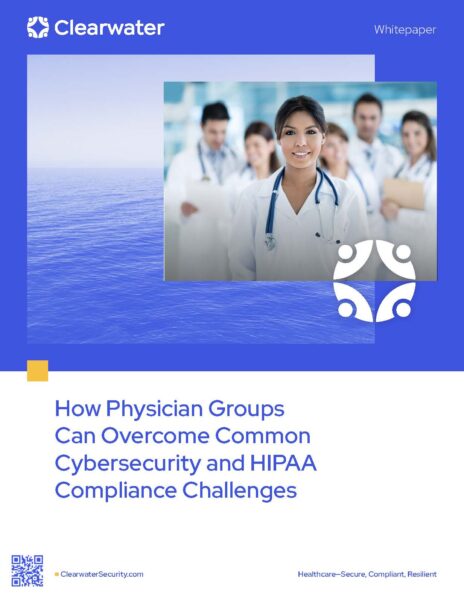Blog
We know you have a lot of questions. That’s why our team has curated top-notch resources to help you along your healthcare cybersecurity and compliance journey.

NIST and Telehealth: Securing the Remote Patient Monitoring Ecosystem
We are living in an exhilarating time in the world of healthcare. A common theme among many healthcare related stories and articles we come across today is that things which were once thought to be a matter of science fiction are now moving closer to becoming a reality. A Feb 27, 2019, article from Forbes Magazine, entitled, “Telemedicine: The Latest Futuristic Tech Prediction from The Jetsons To Come True,” brought up a cartoon show from 1962, “The Jetsons,” in which depicted patients video conferencing physicians for diagnosis and treatment as being something commonplace.

What Does OCR’s Lowering of Maximum Annual Caps Mean for Covered Entities?
The Office for Civil Rights (OCR) gave notice in the Federal Register that it is lowering the maximum annual caps for all HIPAA culpability tiers, except for the willful neglect without timely correction tier. There has been uncertainty for some time as to whether OCR’s interpretation of the statute was appropriate with regard to the $1.5M annual limit for all culpability levels.

Cyber and Privacy Risks Are Bleeding Over into Medical Professional Liability Risks | Update from the Cayman Captive Forum
Over November 27th to 29th, the 26th annual Cayman Captive Forum was held in Grand Cayman. Over 1,400 specialists including captive directors, CFOs, CROs, service providers and captive managers from around the world met to discuss the issues most pressing to the captive insurance industry. One of the key topics discussed was the apparent evolution from what started out as “HIPAA compliance risk” to “cybersecurity risk” to a “patient safety risk” and now “medical professional liability risk”.

Protecting Investments: Why Healthcare Private Equity Investors Must Increase Focus on Cybersecurity Risk
Private equity investments in the healthcare industry have been increasing dramatically. In the past three years ...

Anthem Breach Learnings: HITRUST Certification Is Not A Replacement for An Enterprise Security Risk Analysis
The recent $16 million HIPAA settlement with Anthem, Inc. in the wake of the 2015 breach of nearly 79 million ...

Medical Device Security and CIO Insomnia
During a conversation over drinks with a number of CIOs at a recent healthcare conference, I discovered that the ...

Panaceas, Shiny Objects and the Importance of Managing Risk in a Healthcare Environment–Part 3
Is there a more challenging position anywhere in information security than that of a healthcare organization’s ...

Strengthening Your Cybersecurity Ecosystem — One Step at a Time
Every day, it seems, cyber criminals figure out new ways to attack hospitals and compromise patient data and ...

Panaceas, Shiny Objects and the Importance of Managing Risk in a Healthcare Environment – Part 2
Healthcare CIOs, CISOs, and other information risk management leaders face daunting challenges when it comes to ...

Panaceas, Shiny Objects and the Importance of Managing Risk in a Healthcare Environment–Part 1
You’re the CISO of a healthcare organization and you just sat through an amazing sales presentation by one of your ...

HIPAA Risk Analysis Tip – #WannaStopCrying
Unless you've just returned from a 10-day interplanetary space mission, you've heard about the weaponization of ...

HIPAA Risk Analysis Tip – What Captures OCR’s Attention?
here’s pain in the voices of CISOs who haven’t been able to persuade their executive team to invest in an ...

